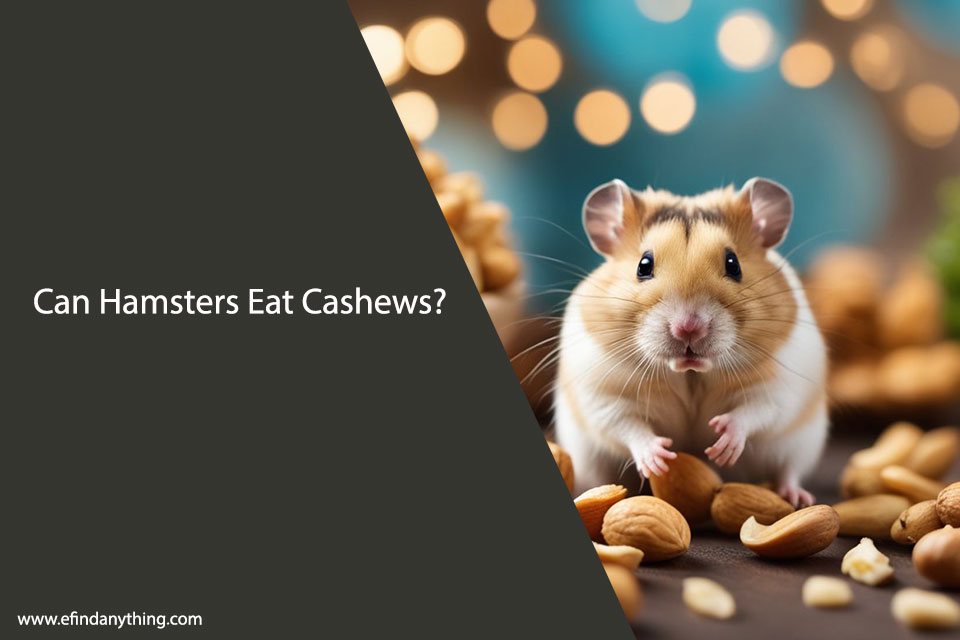Cashews are a popular snack for humans, but can hamsters eat them too? Many pet owners wonder if it’s safe to share their favorite foods with their furry friends. While some human foods can be healthy for hamsters in moderation, others can be harmful or even toxic. In this article, we’ll explore whether hamsters can eat cashews and what precautions you should take if you decide to feed them to your pet.
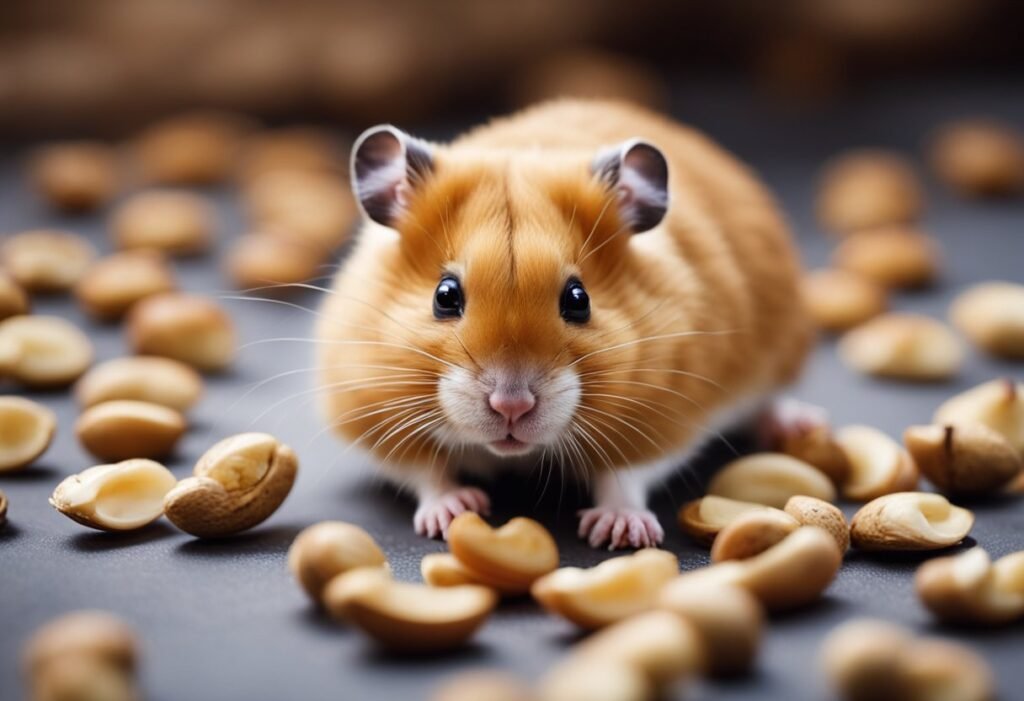
Firstly, it’s important to note that hamsters are omnivores and require a balanced diet of protein, carbohydrates, and fat. While they primarily eat commercial hamster food, they can also benefit from occasional treats like fruits, vegetables, and nuts. However, not all foods are safe for hamsters to eat, and some can cause digestive issues or other health problems. Therefore, it’s crucial to do your research before introducing any new foods into your hamster’s diet.
Table of Contents
Can Hamsters Eat Cashews
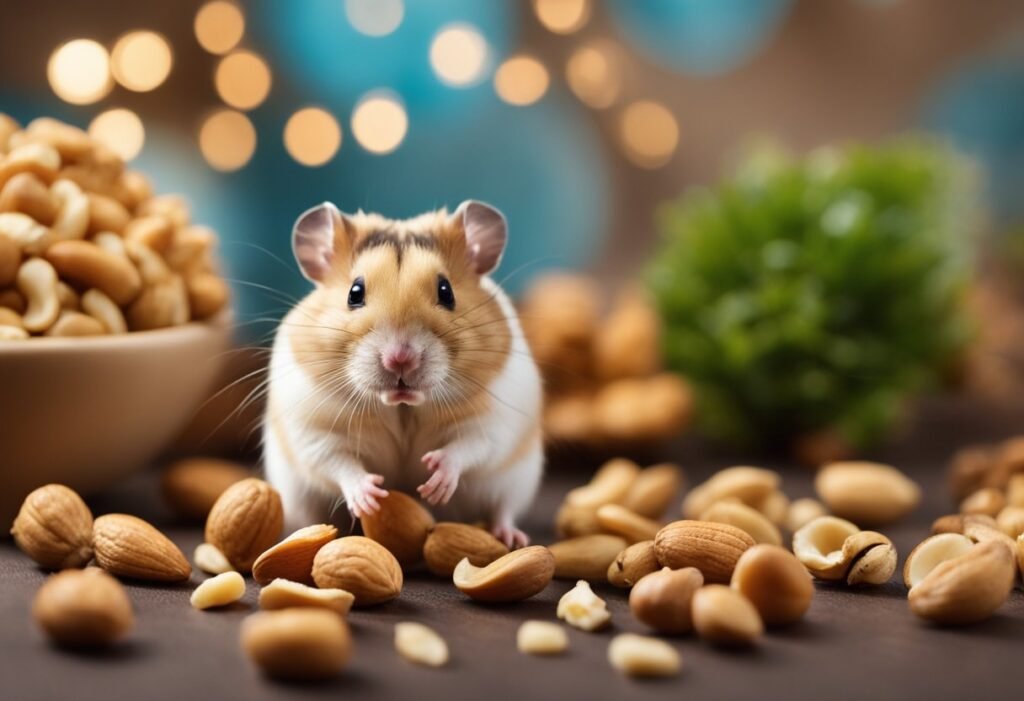
Hamsters are known to be curious little creatures who love to nibble on various foods. However, not all human foods are safe for them to eat. One such food that often comes into question is cashews.
Cashews are a popular snack among humans due to their nutty flavor and nutritional benefits. However, when it comes to hamsters, it is important to be cautious. While cashews are not toxic to hamsters, they should be given in moderation.
Cashews are high in fat and calories, which can lead to obesity and other health issues in hamsters. It is recommended to limit the amount of cashews given to hamsters to one or two pieces per week.
Additionally, hamsters have a tendency to store food in their cheeks and can choke on larger pieces of food. It is important to break the cashews into smaller pieces before giving them to your hamster.
In summary, while cashews are not toxic to hamsters, they should be given in moderation and broken into small pieces to avoid choking hazards. It is important to prioritize a balanced diet for your hamster and consult with a veterinarian if you have any concerns about their diet.
Hamster Dietary Basics

Nutritional Needs of Hamsters
Hamsters are omnivores, meaning they eat both plant and animal-based foods. In the wild, they eat a variety of foods such as insects, seeds, fruits, and vegetables. In captivity, it is important to provide a balanced diet that meets their nutritional needs. A good hamster diet should consist of:
- High-quality hamster food: A pelleted food specially formulated for hamsters that contains a mix of grains, seeds, and vegetables. Check the label to ensure it is high in protein and fiber.
- Fresh fruits and vegetables: Small amounts of fresh fruits and vegetables can be given as treats. Examples include carrots, broccoli, apples, and bananas.
- Fresh water: Always ensure your hamster has access to fresh, clean water.
Risks of Improper Diet
A poor diet can lead to health problems in hamsters. Some common risks of an improper diet include:
- Obesity: Hamsters are prone to obesity if they are overfed or given too many high-calorie treats.
- Dental problems: Hamsters’ teeth continue to grow throughout their lives, so they need to gnaw on hard objects to wear them down. A diet that lacks hard foods can lead to dental problems.
- Digestive issues: A diet that is too high in fat or low in fiber can lead to digestive problems such as diarrhea or constipation.
It is important to avoid feeding hamsters certain foods that can be harmful to their health. These include chocolate, caffeine, alcohol, and high-sugar foods. While cashews can be a healthy snack for humans, they are not recommended for hamsters due to their high fat content.
Cashews and Hamsters
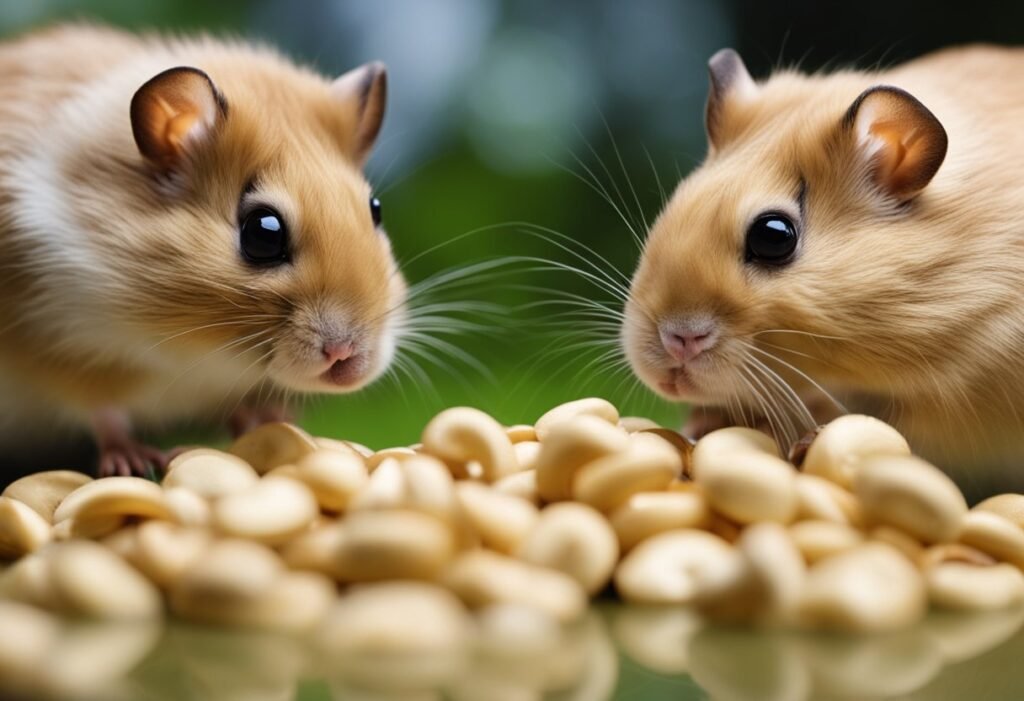
Hamsters are known to be avid nibblers and are always on the lookout for something to munch on. Cashews are one of the many foods that hamster owners may consider feeding their pets. However, it is important to understand the potential benefits and hazards of feeding cashews to hamsters before doing so.
Benefits of Cashews for Hamsters
Cashews are a good source of protein, fiber, and healthy fats. They also contain essential vitamins and minerals that are beneficial for a hamster’s overall health. For instance, cashews are rich in magnesium, which helps regulate blood sugar levels and aids in bone development. They also contain zinc, which is essential for healthy skin and fur.
In addition, cashews are a good source of antioxidants, which help protect the body from damage caused by free radicals. This can help boost a hamster’s immune system and prevent certain diseases.
Potential Hazards
While cashews can provide several benefits to hamsters, they can also pose certain hazards. One of the main concerns is the high fat content of cashews. Hamsters are prone to obesity, and a diet high in fat can increase their risk of developing health problems such as diabetes and heart disease.
Another concern is the potential for choking. Cashews are relatively hard, and if a hamster is not able to chew them properly, they may get stuck in their throat, leading to choking or other respiratory problems.
It is also important to note that cashews should be given to hamsters in moderation. While they can provide several health benefits, they should not be a staple in a hamster’s diet. Hamsters require a balanced diet that includes a variety of foods, including fresh fruits and vegetables, grains, and protein sources such as lean meat or insects.
In conclusion, while cashews can provide several benefits to hamsters, they should be fed in moderation and with caution. Hamster owners should always consult with a veterinarian before introducing new foods to their pet’s diet.
Feeding Guidelines
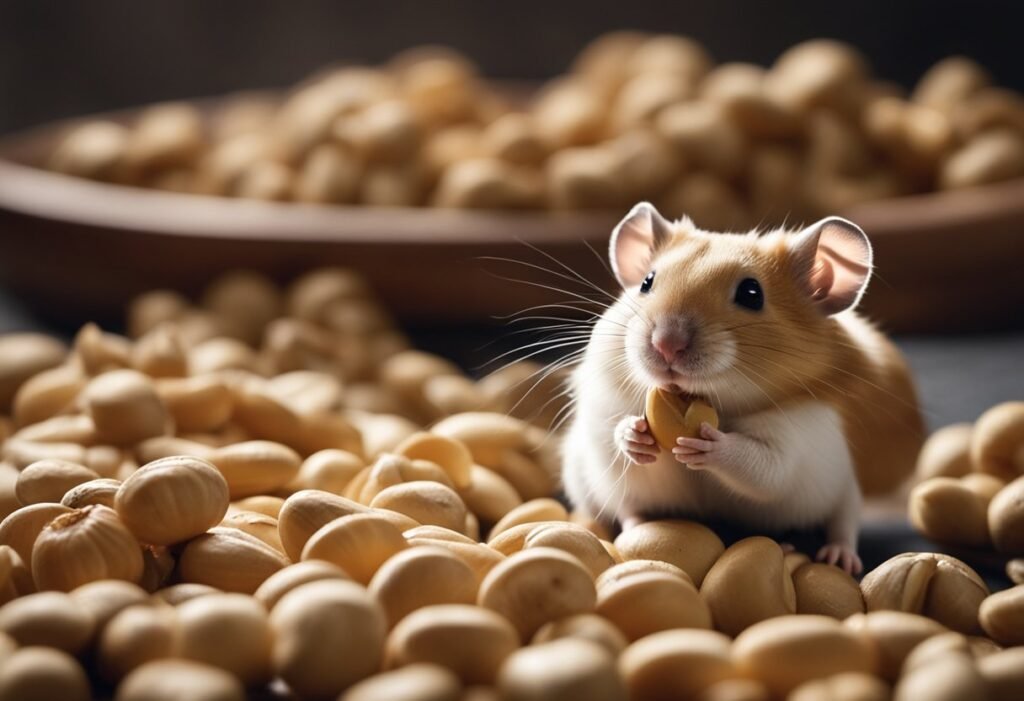
How to Feed Cashews
Hamsters enjoy cashews, but it is important to feed them in moderation. Before feeding cashews to hamsters, the nuts should be roasted and unsalted. Raw or salted cashews can cause digestive problems and even lead to death in severe cases.
It is recommended to break the cashews into small pieces to avoid choking hazards. Hamsters have small mouths and can have difficulty eating large pieces.
Appropriate Quantities
Cashews should be considered a treat and not a regular part of a hamster’s diet. Hamsters should be given no more than one to two cashews per week. Overfeeding can lead to obesity and other health problems.
Frequency of Feeding
Cashews should not be given to hamsters more than once or twice a week. It is important to remember that hamsters have a sensitive digestive system and sudden changes to their diet can cause gastrointestinal issues.
When introducing cashews to a hamster’s diet, it is recommended to start with a small amount and gradually increase the quantity over time. If the hamster shows any signs of discomfort or digestive issues, cashews should be removed from their diet immediately.
Overall, cashews can be a tasty and nutritious treat for hamsters when fed in moderation and prepared correctly.
Alternatives to Cashews
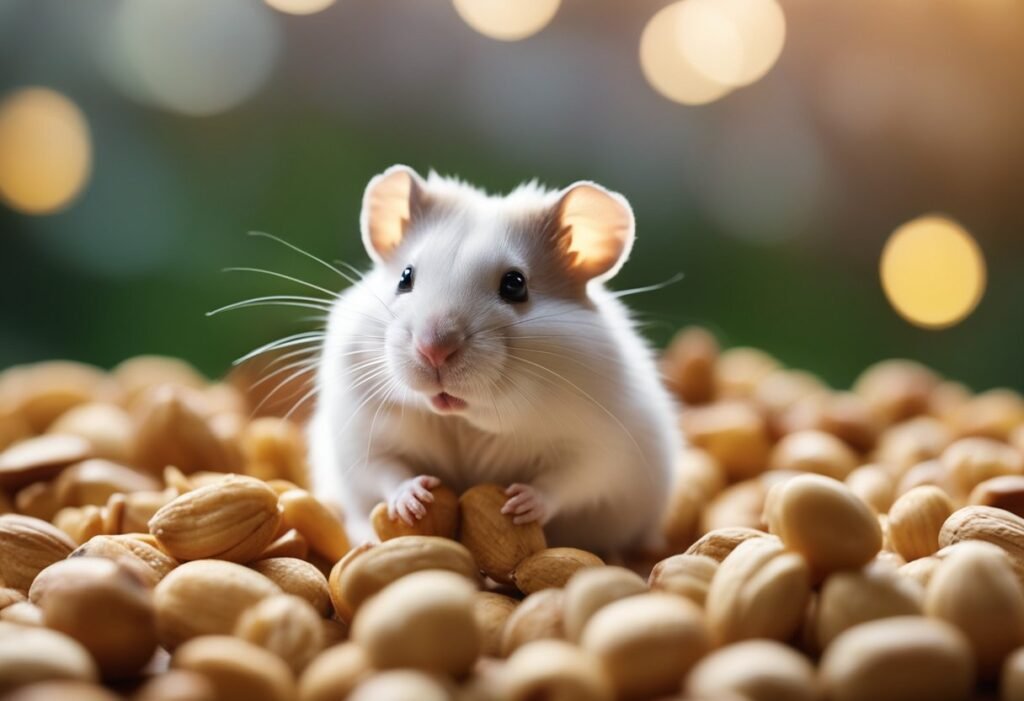
Safe Nuts for Hamsters
While cashews are not safe for hamsters to eat, there are other nuts that can be given as treats in moderation. Nuts that are safe for hamsters to eat include:
- Almonds (without the shell)
- Hazelnuts (without the shell)
- Peanuts (unsalted and without the shell)
- Pistachios (unsalted and without the shell)
- Walnuts (without the shell)
It’s important to note that nuts should not make up a large portion of a hamster’s diet and should only be given as an occasional treat. Too many nuts can lead to obesity and other health problems.
Other Healthy Snacks
In addition to nuts, there are many other healthy snacks that hamsters can enjoy. These include:
- Fresh fruits and vegetables (such as apples, carrots, and celery)
- Cooked eggs (without seasoning)
- Small amounts of cooked chicken or turkey (without seasoning)
- Whole grain pasta or bread (in moderation)
It’s important to introduce new foods slowly and in small quantities to avoid upsetting a hamster’s digestive system. Hamsters should always have access to fresh water and a balanced diet of commercial hamster food.
Frequently Asked Questions
What types of nuts are safe for hamsters to consume?
Hamsters can safely consume a variety of nuts, including almonds, peanuts, and cashews. However, it is important to note that nuts should only be given as an occasional treat and not as a regular part of their diet.
Is it safe for hamsters to eat raw nuts?
Yes, hamsters can eat raw nuts. However, it is important to ensure that the nuts are fresh and have not gone rancid, as this can cause digestive issues for your furry friend.
Are there any nuts that are harmful to hamsters?
Yes, some nuts can be harmful to hamsters. Macadamia nuts, for example, can cause muscle tremors, weakness, and hyperthermia. Walnuts and pecans are also high in fat and can cause digestive problems if given in large amounts.
Can hamsters eat nuts with shells on them?
It is not recommended to give hamsters nuts with shells on them, as they can be difficult for them to digest and may cause choking hazards. It is best to remove the shells before giving nuts to your hamster.
Is it okay for hamsters to eat fruit, like bananas, along with nuts?
Yes, hamsters can eat fruit along with nuts. In fact, adding small amounts of fruit to their diet can provide them with essential vitamins and minerals. However, it is important to remember that fruit should also only be given as an occasional treat.
Should hamsters avoid salted nuts in their diet?
Yes, hamsters should avoid salted nuts in their diet. Too much salt can cause dehydration and other health issues for your hamster. It is best to stick to unsalted nuts as an occasional treat.

